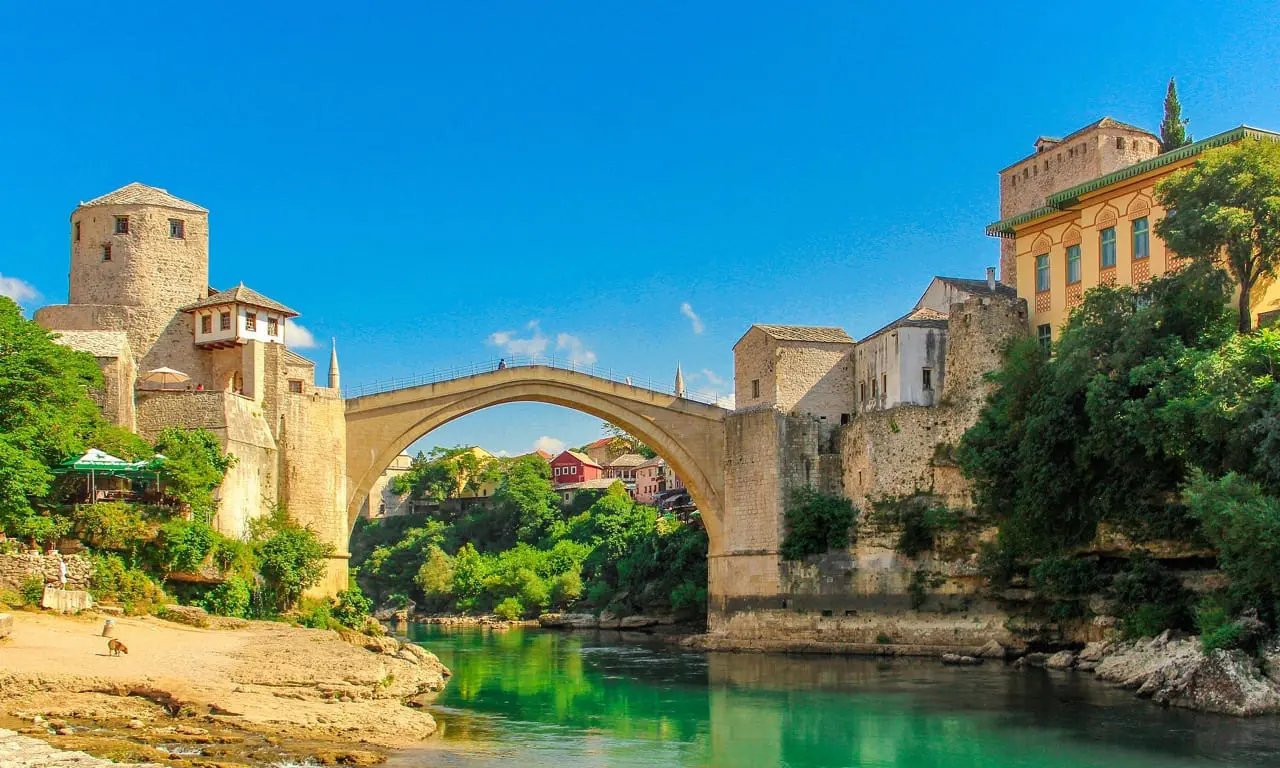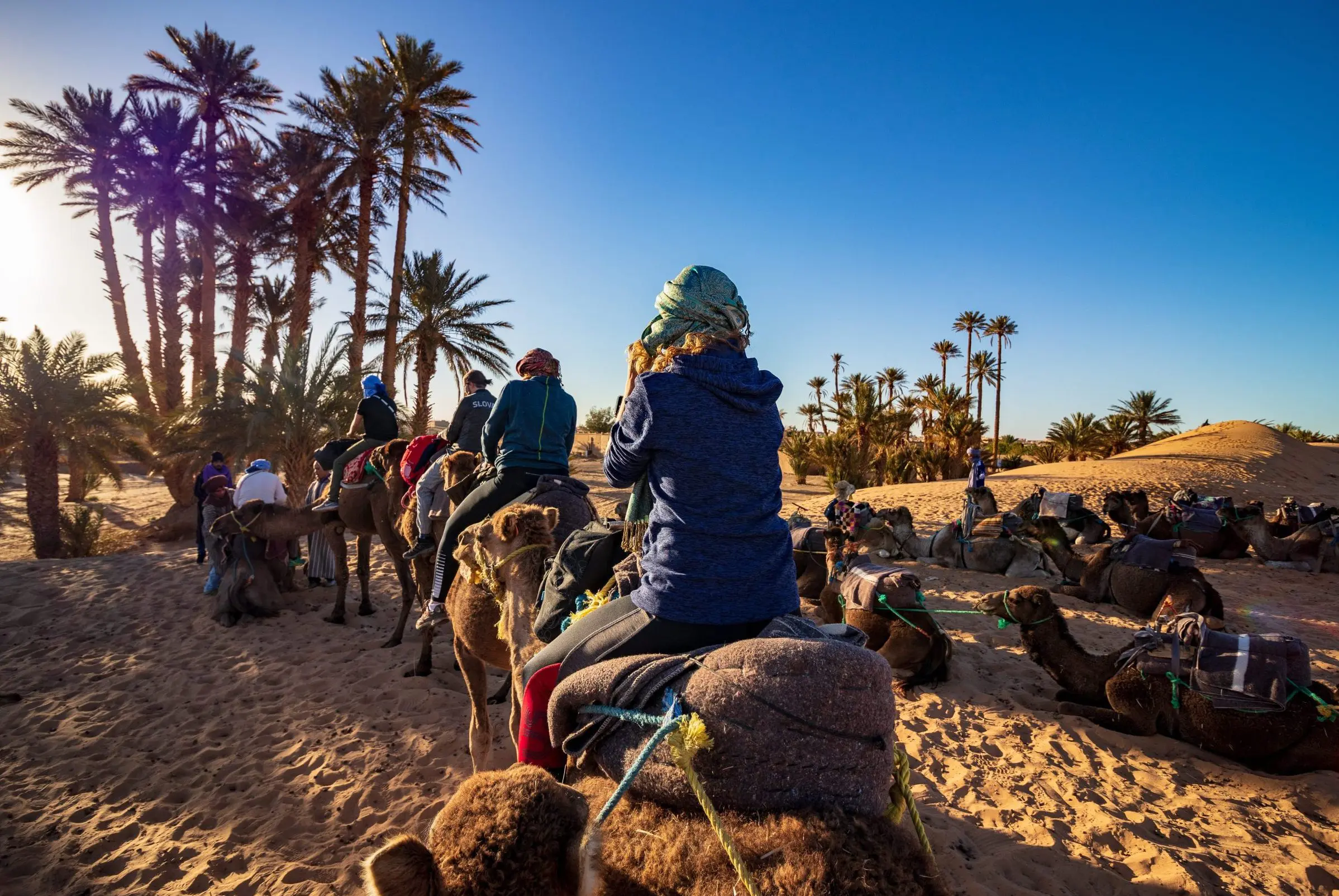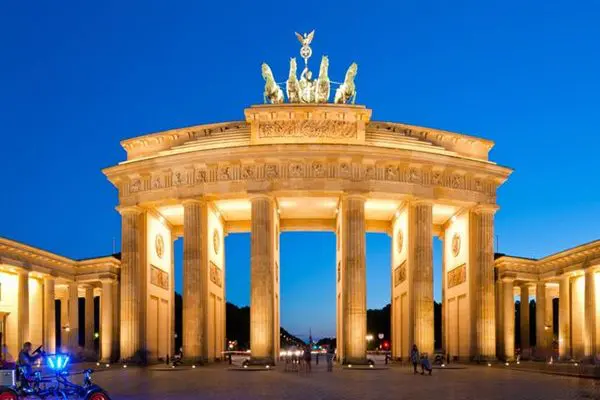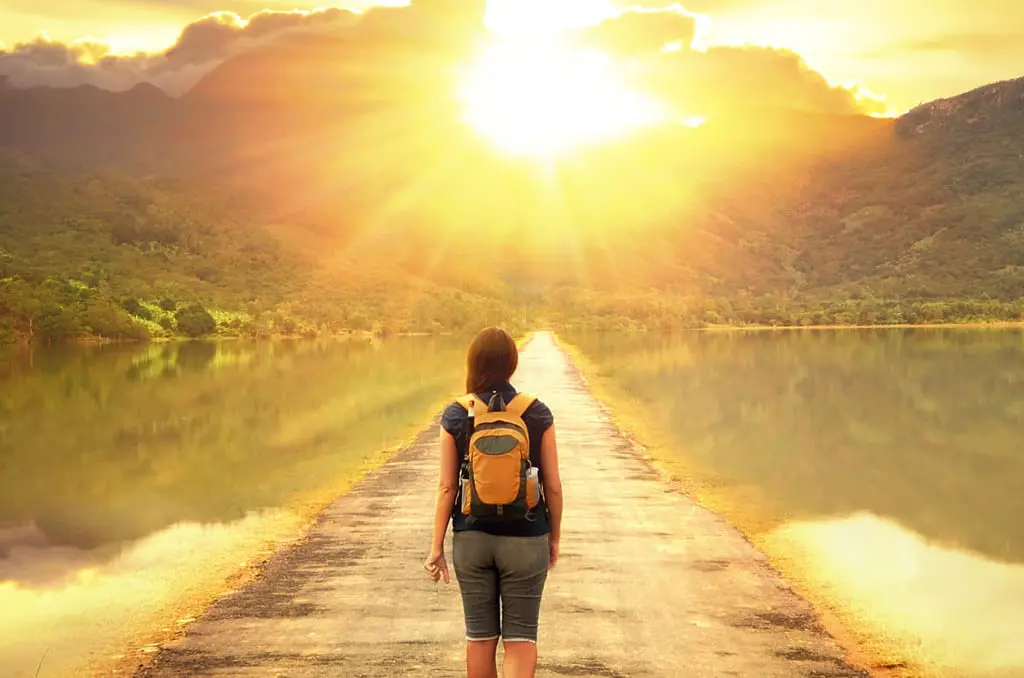Estimated reading time: 10 minutes
Hello fellow travelers! Are you planning a trip to the Balkans and feel like there is a lot of information to catch up on? Then you are in the right place. I will walk with you through all things to know about the Balkans and the essentials for an enjoyable trip. To start with, from its diverse landscapes and vibrant cities to its complex history and delicious cuisine, the Balkans is a destination like no other.
Whether you’re a history buff, a nature lover, or a culinary enthusiast, this guide will provide you with valuable information to enhance your trip to the Balkans!
So pack your bags and get ready to discover the hidden gems and cultural riches that await you in this fascinating region.
1. Balkans 101: Geography, Countries, People

The Balkans is a region in Southeast Europe known for its rich cultural tapestry and diverse landscapes.
Geographically, it is bordered by the Adriatic Sea to the west, the Mediterranean Sea to the south, and the Black Sea to the east, with its northern boundary often considered the Sava and Danube rivers.
The countries that are traditionally included in the Balkans are Albania, Bosnia and Herzegovina, Bulgaria, Croatia, Greece, Kosovo, Montenegro, North Macedonia, Romania, Serbia, and Slovenia. Each of these nations contributes its unique cultural and historical heritage to the mosaic that defines the Balkans.
This area has been a crossroads of various civilizations and empires, including the Roman, Byzantine, and Ottoman, which have all left their mark on the region’s architecture, languages, and traditions.
2. The Diverse Balkan Cultures and Languages

One of the first things to know about the Balkans is its incredible cultural diversity. This region encompasses a variety of countries, each with its own unique identity, language, and traditions.
- From the Slavic influences in Serbia and Croatia to the Ottoman legacies in Bosnia and Herzegovina, the Balkans is a mosaic of cultures.
- During your trip to the Balkans, you’ll encounter different languages, including Serbian, Croatian, Bosnian, Albanian, and Bulgarian, among others.
- It’s helpful to learn a few basic phrases in the local languages to enhance your travel experience and connect with locals more meaningfully. Here are useful basic phrases in some of the Balkan languages:
Serbian/Croatian/Bosnian (Serbo-Croatian)
- Hello: Zdravo (or) Bok (in Croatian)
- Please: Molim
- Thank you: Hvala

Greek
- Hello: Γειά σου (Yia sou) / Γειά σας (Yia sas) [formal]
- Please: Παρακαλώ (Parakaló)
- Thank you: Ευχαριστώ (Efcharistó)
Romanian
- Hello: Bună ziua (formal) / Salut (informal)
- Please: Vă rog
- Thank you: Mulțumesc
3. Rich History

The Balkans has a complex and tumultuous history that has shaped its present-day countries.
The Balkans’ history is deeply layered, from the ancient Illyrians and Thracians to the Roman and Byzantine empires, and more recently, the Ottoman occupation and the Yugoslav wars.
Visiting historical sites like Butrint in Albania, Serbia’s medieval monasteries, and the war-torn streets of Sarajevo reveals the resilience and spirit of the Balkan people.
A trip to the Balkans offers a unique chance to see how history has shaped the region’s architecture, culture, and daily life.
4. Delicious Cuisine

The culinary scene is another highlight of any trip to the Balkans. The region’s cuisine is a delightful blend of Mediterranean, Turkish, and Central European influences, resulting in hearty and flavorful dishes.
Sampling local specialties like ćevapi (grilled minced meat) in Bosnia, sarma (stuffed cabbage rolls) in Serbia, and seafood along the Croatian coast is a must. Don’t forget to try the variety of pastries, cheeses, and wines that each country offers.
The local markets are perfect places to experience these culinary delights firsthand. Here are some local street foods that you should try:
Burek (Balkan Peninsula)
Burek is a savory pastry filled with meat, cheese, or spinach, popular throughout the Balkans.
Ćevapi (Serbia, Bosnia and Herzegovina, Croatia)
While ćevapi, small grilled meat sausages, are fairly well-known, seeking out local variations can provide a unique experience.
Pljeskavica (Serbia)
Often referred to as a Balkan burger, pljeskavica is a seasoned meat patty typically served with onions, ajvar (red pepper relish), and kajmak.
Sutlaš (Balkan Peninsula)
Sutlaš, a creamy rice pudding dessert, is popular across the Balkans. It’s often served with a sprinkle of cinnamon or a dollop of jam.
5. Warm Hospitality

Balkan hospitality is renowned, and you will likely experience it firsthand during your trip to the Balkans. The locals are known for their friendliness and willingness to help visitors.
Whether you’re invited for a coffee in someone’s home or assisted with directions, the warmth and generosity of the Balkan people will enhance your travel experience.
Building connections with locals can provide deeper insights into the culture and traditions of the region, making your Balkans vacation even more memorable.
6. Vibrant Balkan Festivals and Events

The Balkans is home to numerous festivals and events that reflect its cultural richness and diversity. Participating in these festivals is one of the fun things to know about the Balkans.
From music festivals like EXIT in Serbia and Sea Dance in Montenegro to traditional celebrations like the Kukeri festival in Bulgaria, where people dress in elaborate costumes to chase away evil spirits, there is always something happening.
Pro Travel Tip: Planning your trip to the Balkans around these festivals can provide unique experiences and a deeper understanding of the local culture.
7. Affordable Travel in the Balkans

Compared to Western Europe, the Balkans is a relatively affordable travel destination, making it ideal for budget-conscious travelers.
Accommodation, food, and transportation are generally less expensive, allowing you to enjoy a high-quality travel experience without breaking the bank.
This affordability is one of the Balkans essentials that makes it accessible to a wide range of travelers. Whether you’re backpacking or looking for a more luxurious trip to the Balkans, you’ll find options that suit your budget.
8. Architectural Wonders

The architecture of the Balkans is a testament to its diverse cultural influences and historical events. From ancient Roman ruins to Ottoman mosques and Austro-Hungarian buildings, the region’s architecture is varied and fascinating.
- Exploring cities like Dubrovnik with its medieval walls,
- Belgrade with its eclectic mix of styles,
- Sofia with its stunning Orthodox churches, offers a visual feast for architecture enthusiasts.
Understanding the architectural heritage is one of the important things to know about the Balkans, as it provides context to the region’s complex history. A trip to the Balkans allows you to walk through different historical eras, all within a relatively small geographic area.
9. Unique Balkan Souvenirs

Bringing home a piece of the Balkans is a great way to remember your trip. The region offers unique souvenirs that reflect its cultural heritage and artisanal craftsmanship.
- Handcrafted items like filigree jewelry from Macedonia,
- Pirot kilims (rugs) from Serbia,
- Traditional ceramics from Bulgaria are not only beautiful but also tell a story of the local traditions.
When planning your Balkans vacation, consider visiting local markets and artisan shops to find these special items. Collecting souvenirs is one of the fun things to know about the Balkans, adding a personal touch to your travel memories.
10. Practical Balkans Travel Tips

- It’s important to know that public transportation is well-developed in most parts of the region, with buses and trains connecting major cities and towns.
- Renting a car can offer more flexibility, especially if you plan to explore rural areas.
- Consider joining a group tour to navigate the Balkan countries with utmost comfort and joy with the local expertise of knowledgable guides.
- Familiarizing yourself with local customs and etiquette is also one of the essential things to know about the Balkans.
- Tipping is customary in restaurants, and dressing modestly when visiting religious sites is appreciated.
Lesser-Known Facts About the Balkans

Cash is King
Although credit cards are accepted in many places, smaller towns and local markets often operate on a cash-only basis. Always carry some local currency for convenience. ATMs are widely available, but using them in larger cities can help avoid higher fees.
Travel Insurance
Given the region’s rugged landscapes and the potential for adventurous activities like hiking and skiing, travel insurance that covers medical emergencies and adventure sports is highly recommended.
Safety and Scams
The Balkans is generally safe, but like any travel destination, it’s wise to be cautious. Watch out for common scams, such as overcharging by taxis or street vendors. Using reputable services and being aware of your surroundings can help you avoid issues.
Pack for Variable Weather
The Balkan region can experience varied weather conditions, sometimes within the same day. Pack layers to accommodate changing temperatures and unexpected rain, especially if you plan to explore the mountainous areas.
Electricity and Adapters
The Balkans use the standard European two-pin plugs (type C and F) with a voltage of 230V. Ensure you have the appropriate adapters for your electronic devices.
By keeping these ten things to know about the Balkans in mind, you can ensure a well-prepared and memorable Balkans vacation!
 September Sale: 50% Off
September Sale: 50% Off Croatia Sailing 2025: 50% Off
Croatia Sailing 2025: 50% Off ANZAC Day Trips : Save 40%
ANZAC Day Trips : Save 40%  Central & Eastern Europe Tours: 50% Off
Central & Eastern Europe Tours: 50% Off  Why Travel Talk
Why Travel Talk Travel Talk Blog
Travel Talk Blog Responsible Travel
Responsible Travel Fair Travels with Travel Talk
Fair Travels with Travel Talk